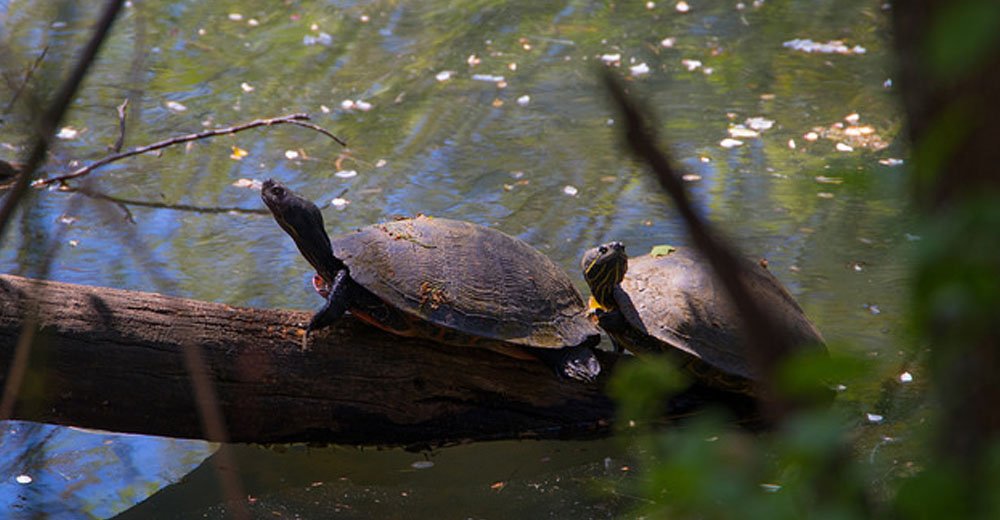BA Environmental & Sustainability Studies
BA Environmental & Sustainability Studies
BA Environmental and Sustainability Studies
What is Environmental and Sustainability Studies anyway?
Environmental and Sustainability Studies – let’s abbreviate it ESS – explores humanity's relationship with the natural world in order to help solve environmental problems. Environmental problems are a priority: in your town, across the state of New Jersey, throughout the US, and around the world. Without a strong and resilient environment, humans live shorter lives, have less productive economies, and miss out on the majesty of nature.
While science, technology, and engineering work has led to amazing tools for ‘fixing’ many of the environmental problems we currently face, the fact remains that these solutions are not always put into place. In other words, we already know how to solve many of the technical aspects of environmental problems we face; it is the human part that remains most challenging. You should study ESS if you want to understand the human context of environmental problems, and want to help implement meaningful, lasting solutions.
Why should YOU study ESS?
ESS can complement your interest in sciences or engineering by helping you put environmental problems into the context of society. At the same time, ESS is a big field of study that stands on its own, and offers the chance to examine environmental issues and relationships with nature from the perspectives of the social sciences, policy, humanities, education, communication, and the arts. If you’re curious about the environment at all, ESS is for you, whether as a major, second major, minor, or certificate. We are also very excited to offer a joint BA/MBA program where you'd complete the BA in ESS and a Masters' in Business Administration (MBA) in just five years, at a significant cost savings. See the program page for more info.
Regardless of the ESS program you choose, you study with professors who are active researchers working on environmental issues. That means, you’ll take classes from people leading the way on many ESS topics – and maybe help them with their research, too. Check out the upcoming courses below and see if any catch your eye.
What can I do with a degree in Environmental and Sustainability Studies? Environment and Sustainability Jobs!
There’s no college degree out there that will guarantee you a high-paying job the minute after you graduate. But the ESS programs will absolutely prepare you for career success. You will develop skills in environmental management, planning, policy, and economics as well as research design, project management, and communication. You will get very good at understanding how to answer complex questions and presenting what you find to others through speaking and writing. Additionally, our internship program gets you real-world experience dealing with ESS issues.
Want to work at the US Environmental Protection Agency? National Park Service? Wind energy company? Be a fly fishing guide? Organic farm? Non-organic farm? Goldman Sachs? Electric car maker? The Sierra Club? Be a sustainability coordinator? A degree in ESS can be suitable for any of these, and many more, career paths. Our majors have gone on to careers with state and local government; private companies working on environmental consulting, monitoring, and remediation; local and state park systems; waste management firms; water utilities; and a whole host of other areas, in addition to enrolling in some of the top graduate and professional programs in the country. One US Bureau of Labor Statistics study noted that career paths associated with sustainability and environmental management enjoy salaries ranging from $63,000 to $166,000 per year.
ESS sounds cool, but it says I get a ‘Bachelor of Arts’ at the end. Is this major for people who don’t like science and math?
ESS is for people who are interested in all sorts of perspectives on environmental issues, including - but not limited to - the sciences. ESS is for people who want to be well-rounded problem solvers, and who understand that environmental problem-solving happens in cultural, political, economic, and historical contexts. In ESS, critical thinking is a real strength. And in fact, we designed the ESS programs to partner with anything else you might study at Rowan (really, anything). The following programs are popular 'partners' for students pursuing an ESS education:
- Environmental Policy & Economics (certificate program)
- Environmental Humanities (certificate program)
- Ethics (minor)
- Ethics (certificate program, scroll to page 4)
- Business Administration
- Environmental Science
- Community & Environmental Planning
- Geographic Information Systems
- Sustainable Built Environments
- Adventure Leadership and Education (certificate program)
- Geology
- Biology
- Writing for the Environment (certificate program, coming soon!)
- Environmental Education (certificate program, coming soon!)
Check out the most recent Major Program Guide here. (If you declared your major in ESS before Fall 2018, click here. Contact the program coordinator or dept. advisor, Nadia Rahin, if you have any questions about which one to use!) Check out the Program Guide for the Minor in ESS here. Use the links above to see the Program Guides for the certificate programs, or for links to other departments. And don't forget to check out our joint program with the Rohrer College of Business, here.
Of course we are happy to help you figure out the best path through all the classes and requirements – you don’t have to do it alone!
View the program guide for the BA in Environmental & Sustainability Studies here.
